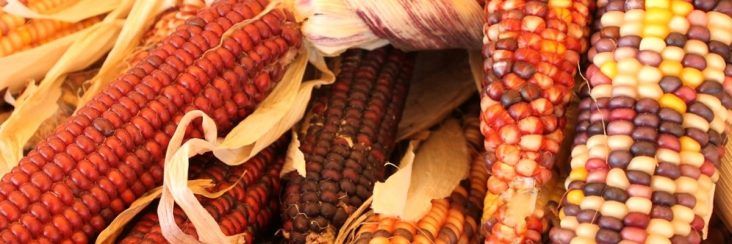University of Arkansas School of Law to help nation’s Indian tribes develop food code program
by July 13, 2016 2:21 pm 642 views

The W.K. Kellogg Foundation has awarded a $902,400 grant to a model food code project at the University of Arkansas School of Law to aid the country’s 567 Indian tribes.
The Kellogg grant will allow the Indigenous Food and Agriculture Initiative to establish a model legal framework that tribal governments may adopt all or in part to regulate and support food and agricultural systems. It is intended to assist tribes to address food insecurity and related issues with the tribal community.
Code sections may include provisions for food safety, land use, water, sustainability principles, organic production, seed protections and protection of traditional foods among other subjects.
“We are honored to receive support from the Kellogg Foundation for this important project,” said Janie Simms Hipp, director of the Indigenous Food and Agriculture Initiative. “The project will support all tribal governments, their communities and families and ultimately lead to greater control over tribal health, well-being and economic sustainability.”
The project is now finishing its first phase and conducting a series of roundtable discussions to determine the most important needs in Indian Country, said Erin Shirl, assistant director of the project. In the second phase, the initiative will draft and publish sections that will address the five most important needs as determined from the feedback gathered in the roundtables, Shirl said.
In the third phase, a comprehensive set of code sections will be drafted and published and aid tribal governments with the adoption and implementation of code sections, she said. Tribal governments have the authority to enact laws affecting the lands, natural resources, communities and people within their jurisdiction, Shirl said.
By helping to secure food and agricultural policy within tribal self-governance, the project hopes to ensure that tribes can reclaim the health of their people and long-term food security in their communities, she said. The UA offered the first-in-the-country advanced law degree in agricultural and food law, called the LL.M. Program, more than 30 years ago, Shirl said. The tribal food code model comes under the LL.M. Program.
The numbers of Native American students at the University of Arkansas or in the law school were not immediately available.
Food insecurity is an important issue among the Native American population, Shirl said. That is especially true among the population in remote communities and in areas designated as a food desert. The U.S. Department of Agriculture describes a food desert as an area more than 10 miles from a sustainable food source, such as a grocery store. Food insecurity issues are impacted by poverty and transportation, for instance, and lead to nutritional related issues, according to studies.
Shirl said food insecurity is related to one out of two Native American children likely to develop Type II diabetes in their lifetime. Studies have found that 60% of counties with a native majority face dangerously high food insecurity rates. Further, 23% of the U.S. Indigenous population has terrible access to “adequate food” – almost twice the national average, according to a recent article in the online edition of Think Progress.
In its study, Feeding America, a hunger relief organization, has identified 26 counties in the U.S. with a Native American majority population. At just over 20% the average food insecurity rate of these counties is well above the average for all U.S. counties at 15%. The UA initiative enhances health and wellness in tribal communities by advancing healthy food systems, diversified economic development and cultural food traditions in Indian Country.
The initiative empowers tribal governments, farmers, ranchers and food businesses by providing strategic planning and technical assistance; by creating new academic and professional education programs in food systems and agriculture; and by increasing student enrollment in land grant universities in food and agricultural related disciplines. The model food code to be developed is intended for tribal governments to adopt, either in total or in part, to address the food issues within their jurisdiction.
The Kellogg Foundation was founded in 1930 to support children, families and communities to create conditions where vulnerable children can achieve success as individuals and contributors to society.
